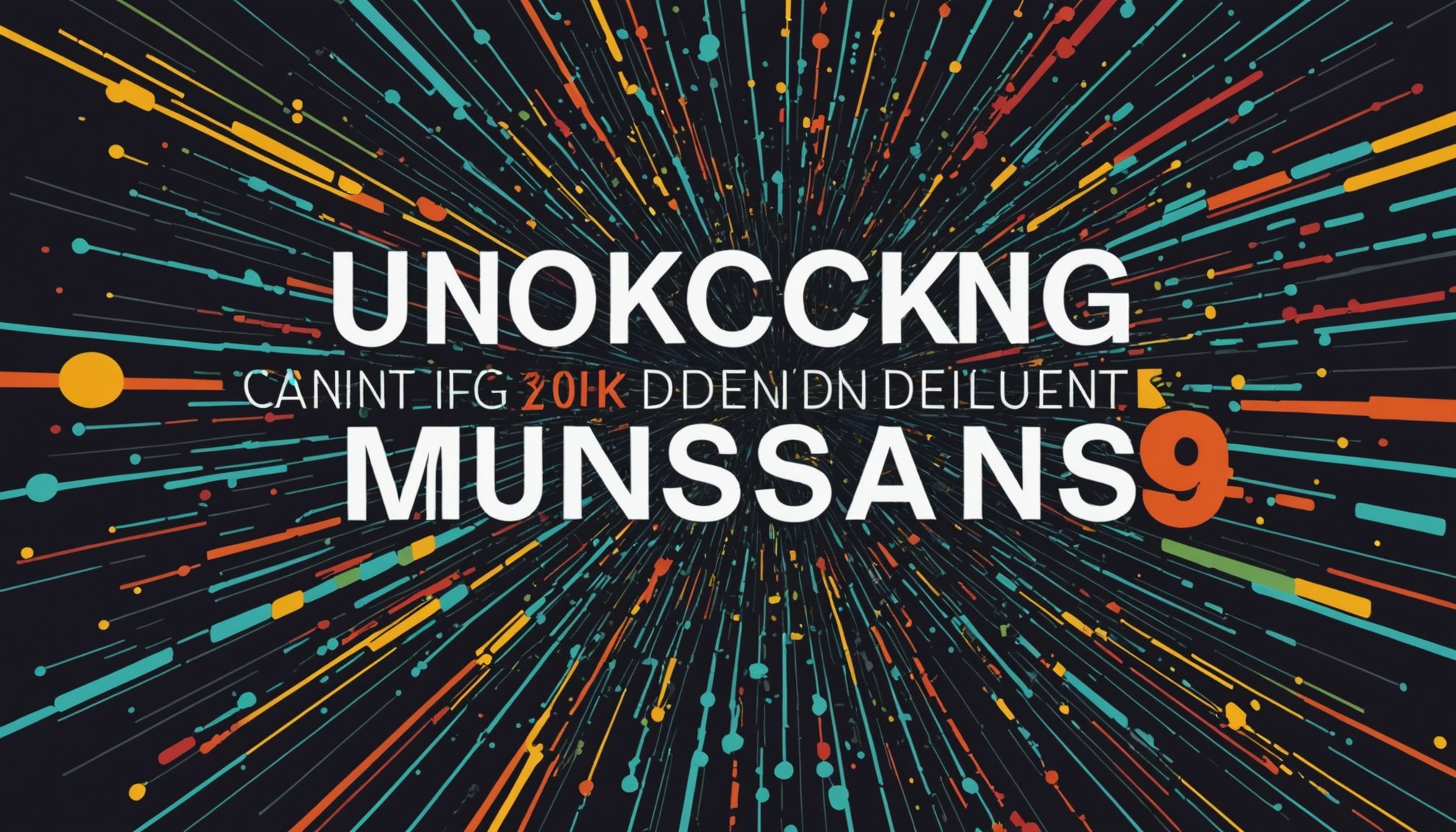Understanding the Music Landscape in the UK
The UK independent music scene is evolving rapidly, reflecting broader changes in the global music industry. In recent years, there has been an explosive rise in independent musicians leveraging digital platforms to reach audiences. This shift has transformed the music industry landscape, providing artists with greater control over their careers.
Key trends in music marketing have emerged from this evolution, particularly around online visibility. Independent musicians today must skillfully navigate the digital realm to stand out. This involves not only creating compelling music but also developing strategic approaches to marketing it. Understanding target audiences and identifying market niches is crucial. By pinpointing a specific audience, musicians can tailor their messages, increasing the likelihood of engaging with listeners meaningfully.
Also read : Exploring the effects of brexit on uk agriculture: navigating challenges and unlocking new opportunities
Moreover, trends suggest that identifying and utilizing niche markets can yield more enthusiastic fan bases, as such audiences often feel a stronger personal connection to artists who cater specifically to their tastes. Embracing unique, authentic storytelling adds to an artist’s appeal, aiding in differentiation within the saturated music industry landscape.
For any independent musician, keeping abreast of these trends and adopting innovative approaches to marketing can significantly enhance their impact and success within the bustling UK music scene.
Also to see : Embrace tomorrow: explore cutting-edge innovations in home renewable energy solutions
Building an Effective Online Presence
For UK independent musicians, having a robust online presence is a crucial part of navigating the music industry landscape. A musician’s website serves as their digital home base. Essential elements include a professional layout with up-to-date music releases, concert schedules, and a blog for engaging content.
Harnessing SEO (Search Engine Optimization) is vital. Musicians should focus on keywords specific to their genre and style, which boosts searchability across search engines. An optimized digital footprint enhances an artist’s discoverability and online visibility, setting them apart in the bustling music market.
Another significant aspect is utilizing analytics. With tools like Google Analytics, musicians can gain insights into visitor demographics and behaviour. This data helps in refining online engagement strategies, ensuring that content resonates with the intended audience. Monitoring metrics can reveal which pages attract the most attention and guide improvements to increase both reach and impact.
In today’s competitive environment, understanding how to maintain and improve one’s online presence is imperative for success. The constantly evolving digital space demands that artists remain proactive, tailoring their approaches to harness the benefits of being accessible and attractive to their target market. By focusing on these key areas, musicians can build an effective and influential online identity.
Leveraging Social Media for Promotion
In the dynamic music industry, social media strategies play a crucial role in amplifying music promotion and enhancing audience engagement. Selecting the right platforms is pivotal. Each social media platform offers unique benefits that cater to different music genres. For instance, Instagram focuses on visual content, which is ideal for showcasing album artwork and behind-the-scenes footage. Meanwhile, Twitter offers real-time interaction, allowing musicians to engage directly with fans.
Moving to content creation, it’s essential for UK independent musicians to produce authentic and captivating content. This includes using stories, live sessions, and interactive posts to maintain a connection with followers. Creating engaging content ensures sustained interest and encourages fans to share, broadening the artist’s reach.
Furthermore, analyzing social media metrics is vital for refining strategies. By utilizing built-in analytics tools like Instagram Insights or Facebook Audience Insights, artists can assess content performance and track audience interaction. This data-driven approach allows musicians to understand which strategies resonate with their audience, enabling them to tweak their content for optimal engagement.
By employing effective social media strategies, independent musicians can significantly boost their visibility, foster deeper connections with their audience, and drive their music promotion efforts forward.
Effective Music Distribution Strategies
Crafting a successful music distribution strategy is vital for UK independent musicians. A key decision involves choosing between aggregators and direct distribution. Aggregators like CD Baby or TuneCore offer simplicity by distributing music across multiple streaming platforms. However, direct distribution gives artists more control but requires significant effort and resources.
Placement on streaming platforms such as Spotify and Apple Music is crucial. Optimal placement increases an artist’s visibility, leading to more streams and fan engagement. The importance of building relationships with playlists curators can’t be overstated, as inclusion in popular playlists can dramatically boost listenership.
To maximize profits through digital music sales, musicians should explore diversified sales channels. Digital stores like Bandcamp provide attractive revenue sharing compared to traditional labels. Furthermore, focusing on exclusive content or merchandise bundles can entice fans to purchase directly from an artist’s platform, increasing support for their music.
Equity in distribution ensures that artists maintain control and receive a fair share of revenue. Independent musicians often rely on music distribution strategies to not only share their sound but to build a sustainable career. Crafting a smart strategy demands being informed, adaptable, and exploring channels that offer the best opportunities for exposure and profit.
Branding and Identity Development
Establishing a strong identity is crucial for UK independent musicians striving to distinguish themselves in the saturated music market. A well-defined musician branding not only communicates who the artist is but also aligns with the expectations and tastes of their target audience. This alignment fosters stronger connections, as fans effortlessly recognize and relate to the musician’s work, feeling a personal connection with their artistic journey.
Personal identity within the music industry is multi-faceted, involving both auditory and visual elements. It entails understanding and representing the essence of one’s music style, values, and persona consistently. Fans appreciate authenticity, and when musicians project a cohesive brand image, it enhances perceived credibility and trust.
Visual identity complements and reinforces an artist’s music and personal story. From album covers to promotional materials, every visual aspect should resonate with the musician’s core identity. This presents an opportunity to captivate and attract potential fans through memorable imagery and design that encapsulate the artist’s message.
In a competitive landscape, musicians must ensure their branding resonates with authenticity and uniqueness, driving audience recognition and loyalty. Establishing this blend of personal and visual identity offers a pathway to engaging and retaining a dedicated fan base.
Engagement and Building a Fanbase
Creating a vibrant fanbase is an essential element for UK independent musicians aiming to sustain their careers in the music industry landscape. It is not just about the music; it’s about forming genuine connections beyond the tunes. This involves fan engagement strategies, such as establishing a two-way dialogue with supporters, which nurtures loyalty and promotes a personal bond.
Community building can further enhance this relationship by fostering a sense of belonging among fans. Musicians can create a hub where followers connect with each other over shared interests and experiences via forums or regular live interactions. Such spaces often drive the passionate exchange of ideas and amplify the reach of an artist’s music through word-of-mouth.
The strategic use of email lists offers a direct line of communication. By sending updates, exclusive content, or personal messages, musicians can forge a closer connection with their audience. This direct approach also circumvents algorithmic constraints on social media platforms.
Building an engaged community around one’s music isn’t just a marketing tactic – it’s an invitation for fans to be part of an artist’s journey. This deep-rooted engagement often translates to sustained support, ensuring a more loyal following in a competitive industry.
Navigating Challenges in Online Marketing
For UK independent musicians, the digital realm poses unique marketing challenges. A saturated market means that standing out is increasingly difficult. One challenge involves mastering competition analysis. By researching industry trends and competitor strategies, musicians can identify opportunities and gaps, enhancing their approach.
To overcome fierce competition, artists must embrace adaptability. Regularly updating their music and marketing strategies ensures they remain relevant. This demands continuous learning in evolving digital tools, platforms, and audience preferences, preventing stagnation in their music industry landscape presence.
Another obstacle is handling industry obstacles like algorithm changes on social platforms, which can impact reach and engagement. Musicians should diversify their marketing tactics to mitigate this, such as spreading efforts across multiple platforms and engaging audiences through various content forms.
Ensuring effective online presence also involves tackling trends in music marketing, such as balancing authenticity with promotional content. Maintaining genuine interaction nurtures deep audience connections, crucial in a landscape flooded with impersonal messaging. By addressing these challenges, musicians can optimise their promotional efforts, enhancing visibility and fostering stronger fan relationships which are pivotal for sustained success.











